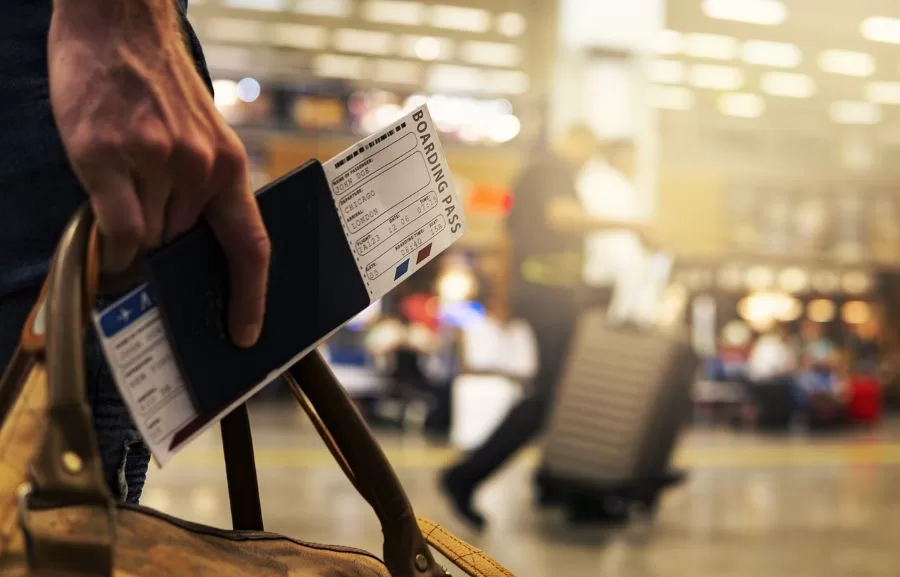Travel
How Airlines Are Embracing Contactless Passenger Experience

You step into the airport, phone in hand, ready for a seamless journey. No need to stand in line for your boarding pass or to leave your luggage, no more need to sift through papers, looking for the ones you need at each checkpoint while the airport employee’s doubtful gaze scans you up and down.
You just scan a QR-generated code on your phone, and technology performs all the necessary checkups. Contactless technology has changed the way we travel by air for the better, and we’re here for it.
In today’s article, we’ll take a deep dive into these innovations to learn more about current and future changes.
Check-In Processes and QR Codes
QR codes are not new; they’ve been around for decades, but they’ve just gotten front-center attention from the air travel industry.
Here’s how it’s used in most modern airports around the world:
When you arrive at the airport, simply scan your airline QR code on your smartphone to receive your boarding pass. No more juggling between printed tickets or waiting in long lines. It’s all about reducing stress before you even board.
QR codes integrate seamlessly with mobile apps from major airlines like Delta and American Airlines, where you can manage every aspect of your flight right from booking to seat selection without touching a kiosk screen or talking to an agent.
What does this mean for the future? Experts see potential in expanding QR code use beyond check-ins like real-time updates for gate changes or tracking baggage directly through passengers’ devices.
The Role of Biometric Technology in Streamlining Security
Biometric technology is the next major transformation in how airports manage foot traffic and security. Nowadays, instead of pulling out your passport or ID and waiting in a long line while the gate operator checks each person, you walk through a security checkpoint that verifies your identity using facial recognition.
By integrating biometrics like fingerprint scans and iris recognition, airlines and airports can speed up passenger verification.
A standout example is Delta Air Lines’ use of biometric terminals in major hubs like Atlanta’s Hartsfield-Jackson Airport. Passengers experience quicker boarding as systems recognize them without any paper documents involved.
And it doesn’t stop there. Experts foresee future applications extending beyond security checks to bag drop-offs or even boarding itself, cutting down time spent in queues and enhancing safety protocols.
Contactless Baggage Handling: What to Expect
In most major airports, you can expect seamless integration between mobile apps and bag drop stations. All you have to do is identify a self-service kiosk and scan a QR code linked to your flight details. This initiates the process automatically, ensuring that human interaction remains minimal.
Major airlines are investing in RFID (Radio Frequency Identification) technology for better tracking capabilities. It allows real-time updates on your luggage’s location through smartphone notifications. This is a relief for any traveler worried about lost baggage!
Future prospects include fully automated robotic systems managing sorting and loading tasks behind the scenes, reducing human error significantly. This is also part of the recent efforts to make aviation more sustainable and reduce wasted time and resources.
Digital Health Passports and Travel Safety
Digital health passports can store vaccination records, COVID-19 test results, and other relevant health data right on your phone. This is an initiative by the International Air Transport Association (IATA), which connects travelers with testing centers while securely storing their information for seamless check-in processes.
Airlines worldwide embrace this technology to reassure passengers about in-flight safety standards as pandemic concerns linger. With airlines like British Airways already using such systems, they promise less paperwork and fewer delays at airports globally.
These passports also ease cross-border travel restrictions, which is crucial in our interconnected world! As they gain popularity across various industries beyond aviation alone, future innovations may extend into healthcare access or even secure event entries seamlessly.
Wrap Up
Aviation technology’s future is bright, with ongoing innovations enhancing passenger convenience and safety. Airlines continue to explore new tools and systems, setting the stage for smarter, more efficient travel experiences.

















































